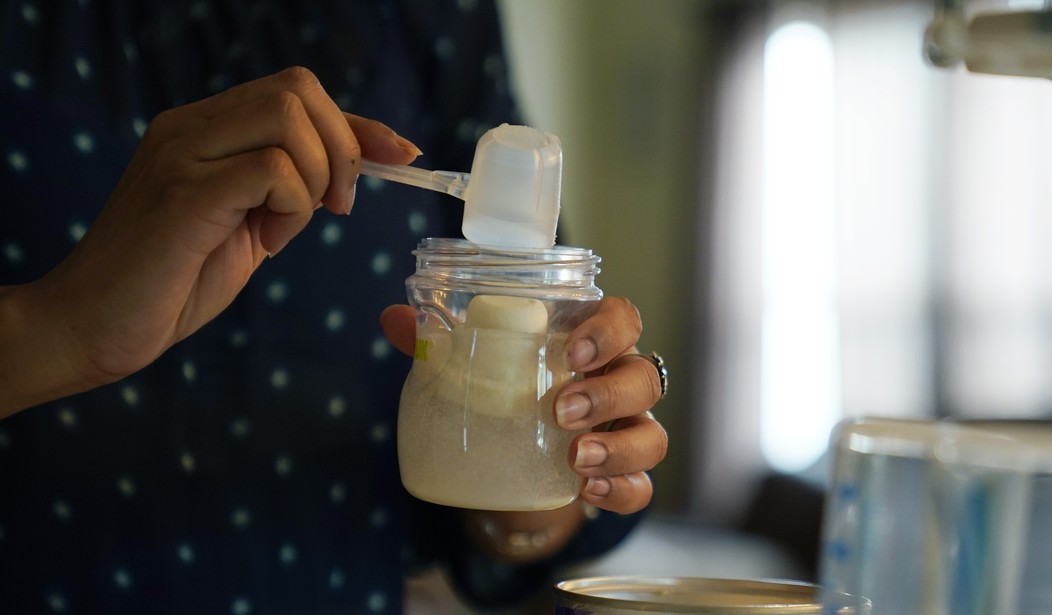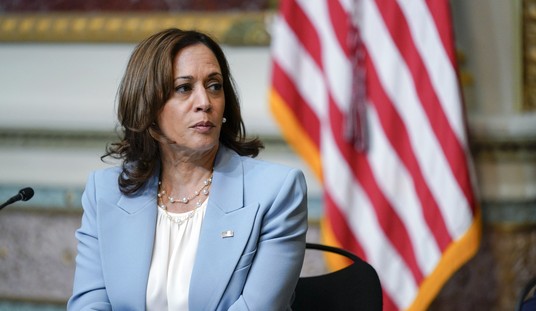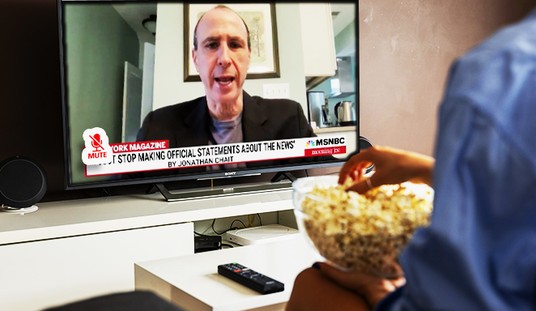Hillary Clinton once wrote a book called "It Takes a Village," in which she gave advice for parents on how to be better ones. Read it as a parent, and you'll find that what Clinton really wrote was an advertisement to look far more motherly, wise, and a part of your family when her presidential husband was trying to shore up the idea that he was your average American family guy.
The advice was either nebulous or painfully obvious. Oftentimes, it was flat-out lies. A sock turned into a puppet can keep a small child entertained for hours? Nothing keeps a small child entertained for that long... but I digress. Clinton's book on child-rearing included what all authoritarian screeds include, which is that a child isn't just the responsibility of the parents, it's also the responsibility of the state. This isn't surprising at all, given the Democrat solution to every problem is "the government can help."
Of all the entities that should help raise a child, the government is not one of them, but Clinton is right in her title at the very least. It does take a village to raise a child, but that village is thinning out and disappearing, and as such, so are America's birth rates.
Fewer and fewer people want to have children, and the rate of decline is shocking. What's going on?
The Hill had an excellent piece on the matter. Firstly, it detailed the stark decline in birth rates in recent history:
Nearly 45 percent of women aged 15 to 49 were childless between 2017 and 2019, according to data from the Centers for Disease Control and Prevention (CDC), up from about 42 percent between 2015 and 2017.
[...]
A recent Pew Research Center survey shows that 47 percent of adults under 50 without children say they are unlikely to ever have them — a 10-percentage point increase from 2018.
This was followed up by various reasons, many of which actually ring true.
The economy is a major factor, and a very obvious one. With costs skyrocketing, bringing a child into the mix is going to complicate things quite a bit, especially considering that the cost of childcare has spiraled out of control. As a parent of a one-year-old, I can confirm this, but you don't have to take my word for it as The Hill reports:
The cost of childbirth alone has tripled since 1996 — raising the threat of medical debt for young mothers.
The national median charge for a vaginal delivery for someone receiving care in their health insurance network in the U.S. is now nearly $14,000, according to the FAIR Health’s Cost of Giving Birth Tracker.
The median price for an in-network C-section is even pricier: about $17,000.
And the cost of raising children — including transportation, food and child care — has skyrocketed in recent years, growing by nearly 20 percent between 2016 and 2021, according to a LendingTree study.
It now costs about $22,000 a year to raise a small child in the U.S., according to the LendingTree study, which was published last year.
Most households have dual incomes and are still managing to just stay afloat, and the way childcare costs are today it's almost cheaper to have one parent drop out of the workforce altogether and accept lesser living conditions in order to be a stay-at-home parent. It would be a noble sacrifice, but even then it's no guarantee that things will go smoothly, as in this economy, you could be laid off without warning.
There are other factors. Many surveyed over 50 report they never had children, not because they didn't want them, but because it just didn't happen for them. There are many factors as to why this is the case, but as I've written in more detail previously, the dating environment in the Western world has become more than awful. While women have succeeded more in the workplace, their financial standards for men have become higher, weeding out a great deal of men from being qualified as datable. Thanks to the nature of hypergamy, more and more men and women go without serious relationships and, as a result, children. There's also the modern view of men fed to women, which creates its own issues.
(READ: Women Need to Decide How They Want to Be Viewed by Society)
(READ: Women Want to Know Why Men Don't Want to Marry Anymore...Allow Me)
The list of things contributing to a declining birthrate is long, and I don't want to make this article into a novel, but I want to point out one that's not being mentioned: the aforementioned village.
Clinton's village involved outside influences on your child. However, the real village that it takes to raise a child is one of extended family members, and that's a decaying idea.
Historically, family units weren't nuclear. They included grandparents, aunts, uncles, brothers, sisters, and more. The nuclear family as we knew it wasn't truly a thing until around the 1950s, when a self-contained family situation was the standard and a sign of success. Historically, multi-generational family households weren't necessarily uncommon. According to the American Enterprise Institute, only about eight percent of Americans between 18 and 50 live in the same household as their parents, as this is now considered a sort of failure.
Moreover, 55 percent of Americans live within an hour of extended family, while the more successful you are financially, the further away you likely live, according to The Survey Center on American Life. This separation often leaves families in an isolated state geographically, making extra-familial connection something that only happens on occasion instead of regularly.
In modern society, we put a lot of approval on the nuclear family, but we oftentimes leave out the importance of extended family in the pursuit of bringing a family up. Nowadays, parents are confronted with a lack of a support system, sometimes by family members who have become unable or unwilling to help in the process of raising children, adding weight to the already heavy responsibility.
I don't think it's any accident that we're seeing fewer children born as the extended family becomes less important. Modernity and consumerism have played a large role in destroying the family unit, but the extended family unit has also taken a hit, and from many sides.














